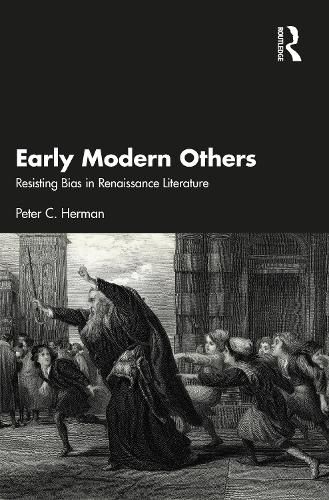Readings Newsletter
Become a Readings Member to make your shopping experience even easier.
Sign in or sign up for free!
You’re not far away from qualifying for FREE standard shipping within Australia
You’ve qualified for FREE standard shipping within Australia
The cart is loading…






Early Modern Others highlights instances of challenges to misogyny, racism, atheism, and antisemitism in the early modern period. Through deeply historicizing early modern literature and looking at its political and social contexts, Peter C. Herman explores how early modern authors challenged the biases and prejudices of their age.
By examining the works of Thomas More, William Shakespeare, Christopher Marlowe, John Fletcher, and Philip Massinger amongst others, Herman reveals that for every "-ism" in early modern English culture there was an "anti-ism" pushing back against it. The book investigates "others" in early modern literature through indigenous communities, women, religion, people of color, and class.
This innovative book shows that the early modern period was as complicated and as contradictory as the world today. It will offer valuable insight for anyone studying early modern literature and culture, as well as social justice and intersectionality.
$9.00 standard shipping within Australia
FREE standard shipping within Australia for orders over $100.00
Express & International shipping calculated at checkout
Early Modern Others highlights instances of challenges to misogyny, racism, atheism, and antisemitism in the early modern period. Through deeply historicizing early modern literature and looking at its political and social contexts, Peter C. Herman explores how early modern authors challenged the biases and prejudices of their age.
By examining the works of Thomas More, William Shakespeare, Christopher Marlowe, John Fletcher, and Philip Massinger amongst others, Herman reveals that for every "-ism" in early modern English culture there was an "anti-ism" pushing back against it. The book investigates "others" in early modern literature through indigenous communities, women, religion, people of color, and class.
This innovative book shows that the early modern period was as complicated and as contradictory as the world today. It will offer valuable insight for anyone studying early modern literature and culture, as well as social justice and intersectionality.